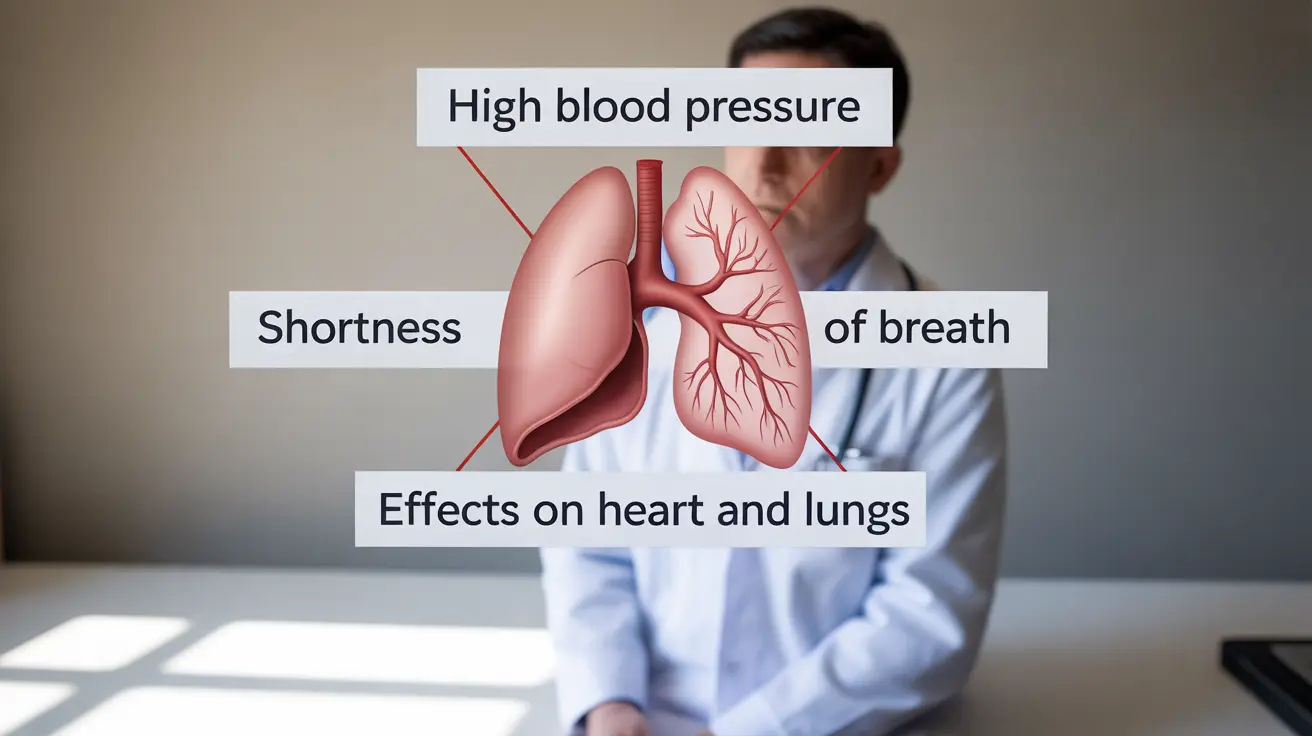When high blood pressure and shortness of breath occur together suddenly, it can be a frightening and potentially dangerous situation requiring immediate attention. Understanding the relationship between these symptoms and knowing when to seek emergency care is crucial for protecting your health and well-being.
This comprehensive guide explores the causes, symptoms, and treatments for sudden high blood pressure accompanied by breathing difficulties, helping you recognize warning signs and take appropriate action.
Understanding the Emergency Signs
Sudden high blood pressure with shortness of breath can indicate a hypertensive crisis, a severe condition requiring immediate medical intervention. Blood pressure readings above 180/120 mmHg, especially when accompanied by breathing difficulties, chest pain, or confusion, constitute a medical emergency.
Warning Signs to Watch For
- Severe headache
- Chest pain or pressure
- Difficulty breathing or shortness of breath
- Vision changes
- Confusion or anxiety
- Nausea and vomiting
The Link Between Blood Pressure and Breathing
High blood pressure can affect your breathing through several mechanisms. When blood pressure rises significantly, it can put extra strain on your heart, leading to fluid buildup in your lungs. This condition, known as pulmonary edema, often results in breathing difficulties and requires immediate treatment.
Causes of Concurrent Symptoms
Medical Conditions
Several underlying conditions can cause both high blood pressure and breathing problems:
- Heart failure
- Pulmonary hypertension
- Anxiety attacks
- Kidney disease
- Endocrine disorders
Lifestyle Factors
Certain lifestyle elements can trigger both symptoms:
- Excessive sodium intake
- Stress and anxiety
- Physical overexertion
- Medication interactions
- Stimulant use
Treatment Approaches
Treatment for sudden high blood pressure and shortness of breath typically involves both immediate interventions and long-term management strategies. Emergency care may include blood pressure-lowering medications, oxygen therapy, and careful monitoring of vital signs.
Long-term Management
Once the immediate crisis is controlled, your healthcare provider may recommend:
- Regular blood pressure monitoring
- Medication adjustments
- Lifestyle modifications
- Stress management techniques
- Regular exercise (as approved by your doctor)
Prevention Strategies
Preventing dangerous blood pressure spikes and associated breathing problems involves several key strategies:
- Taking prescribed medications consistently
- Following a heart-healthy diet
- Limiting sodium intake
- Managing stress effectively
- Regular physical activity
- Maintaining a healthy weight
Frequently Asked Questions
What causes sudden high blood pressure and shortness of breath during a hypertensive crisis?
A hypertensive crisis occurs when blood pressure rises severely and suddenly, often due to medication non-compliance, underlying medical conditions, or severe stress. The resulting strain on the heart and blood vessels can cause fluid buildup in the lungs, leading to shortness of breath.
How can I tell if my shortness of breath is related to high blood pressure or a medical emergency?
If shortness of breath occurs alongside blood pressure readings above 180/120 mmHg, severe headache, chest pain, or confusion, it's likely a medical emergency. Always err on the side of caution and seek immediate medical attention when these symptoms occur together.
What treatments are available for sudden high blood pressure accompanied by shortness of breath?
Emergency treatments may include rapid-acting blood pressure medications, oxygen therapy, and careful monitoring. Long-term management typically involves prescribed medications, lifestyle changes, and regular medical supervision.
Can pulmonary hypertension from high blood pressure cause shortness of breath at rest?
Yes, pulmonary hypertension can cause shortness of breath even when resting. This condition affects the blood vessels in your lungs, making it harder for your heart to pump blood through them, resulting in breathing difficulties.
How can I prevent dangerous spikes in blood pressure that lead to shortness of breath and emergency symptoms?
Prevention involves taking medications as prescribed, following a low-sodium diet, managing stress, maintaining regular physical activity, and keeping regular medical appointments. Monitor your blood pressure regularly and report concerning changes to your healthcare provider.




